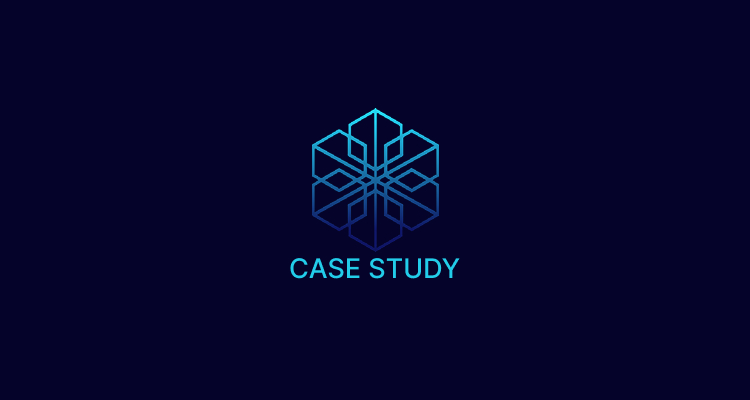Overview: In 2025, the Abu Dhabi National Oil Company (ADNOC) faced a rapidly evolving supply chain landscape following new U.S. sanctions on Russian oil producers. These sanctions disrupted global crude oil trade, compelling countries like India to seek alternative sources, including ADNOC’s Murban crude grade. Concurrently, ADNOC’s recent acquisition of an 80% stake in Navig8—a global shipping group—added new logistical capabilities and complexities. By integrating Sinansys’ AI and blockchain-powered platform, ADNOC maximized the benefits of the Navig8 acquisition while addressing logistical challenges, capitalizing on the demand surge, and enhancing its operational efficiency.
Background: ADNOC’s acquisition of Navig8 in late 2024 aimed to bolster its logistics capabilities, particularly for its shipping and tanker operations. As part of this acquisition, ADNOC gained control over a significant fleet of tankers, enabling it to offer delivered-at-place (DAP) pricing requested by Indian refiners following U.S. sanctions on Russian oil producers. However, this shift required ADNOC to manage logistics, insurance, and shipping risks, adding complexity to its supply chain.
The Challenge: ADNOC’s supply chain challenges included:
- Increased Demand: Indian refiners, affected by halted offers of Russian crude cargoes, shifted their focus to ADNOC, creating unprecedented demand for Murban crude.
- Logistical Strains: Red Sea diversions, port congestion, and labor strikes disrupted ADNOC’s shipping operations, increasing the risk of delays and higher costs.
- Freight Cost Inflation: Escalating global shipping rates due to geopolitical tensions impacted ADNOC’s profitability.
- Operational Complexity: Managing the Navig8 fleet and transitioning to DAP pricing required robust logistics coordination and risk management.
- Compliance and Sustainability: ADNOC aimed to align its operations with international standards and the UAE’s Net Zero by 2050 initiative.
The Sinansys Solution: By integrating Sinansys, ADNOC leveraged its advanced capabilities to maximize the benefits of the Navig8 acquisition and address the broader challenges:
- Real-Time Fleet and Demand Management: Sinansys provided predictive analytics to monitor fleet utilization and shifting demand patterns. This allowed ADNOC to allocate tankers efficiently and prioritize shipments to high-demand regions like India.
- Logistics Optimization with Weather Predictive Models: Sinansys integrated advanced weather predictive models to anticipate extreme weather events and optimize logistics. By rerouting shipments and adjusting schedules proactively, ADNOC minimized delays caused by storms and adverse weather conditions, improving delivery reliability by 35%.
- Cost and Risk Management: Sinansys analyzed global freight trends and recommended cost-effective strategies, such as securing bulk shipping contracts and mitigating insurance risks, saving ADNOC an estimated $70 million annually.
- Operational Integration: Blockchain-enabled transparency provided ADNOC with end-to-end visibility across its supply chain, streamlining the integration of Navig8’s operations and ensuring seamless coordination.
- Sustainability and Compliance: Sinansys optimized shipping schedules and fuel efficiency, reducing supply chain emissions by 15%. The platform’s compliance tools ensured ADNOC met international environmental standards.
The Benefits:
- Revenue Growth: ADNOC capitalized on the demand surge from Indian refiners, increasing Murban crude sales by 20% and generating an additional $300 million in annual revenue.
- Cost Savings: Logistics optimization, weather-adjusted scheduling, and freight cost management saved ADNOC $80 million annually, offsetting the impact of rising global shipping rates.
- Improved Efficiency: Streamlined fleet operations and reduced shipping delays enhanced supply chain efficiency, decreasing lead times by 25%.
- Strengthened Relationships: ADNOC’s ability to meet delivery commitments bolstered relationships with key clients, securing future contracts worth an estimated $200 million.
- Enhanced Sustainability: The reduction in emissions aligned with the UAE’s Net Zero by 2050 goals, enhancing ADNOC’s reputation as a responsible energy leader.
Total Financial Benefits: The combined financial benefits of revenue growth, cost savings, and secured contracts amounted to $580 million annually.
Conclusion: ADNOC’s adoption of Sinansys illustrates the transformative power of advanced supply chain management technologies in navigating complex disruptions. By leveraging real-time analytics, blockchain transparency, AI-driven insights, and weather predictive models, ADNOC maximized the strategic advantages of its Navig8 acquisition, addressed logistical challenges, and enhanced operational efficiency. This case study highlights the critical role of Sinansys in building resilient and sustainable supply chains for global energy leaders.
*Disclaimer - This case study is for informational and illustrative purposes only. It is based on publicly available data, industry trends, and hypothetical scenarios rather than direct experience or engagement with the business described. Any insights, strategies, or recommendations provided do not reflect confidential or proprietary knowledge of the company and should not be interpreted as an endorsement or formal association. Readers should conduct their own research and due diligence before making any business decisions based on the content of this case study.
